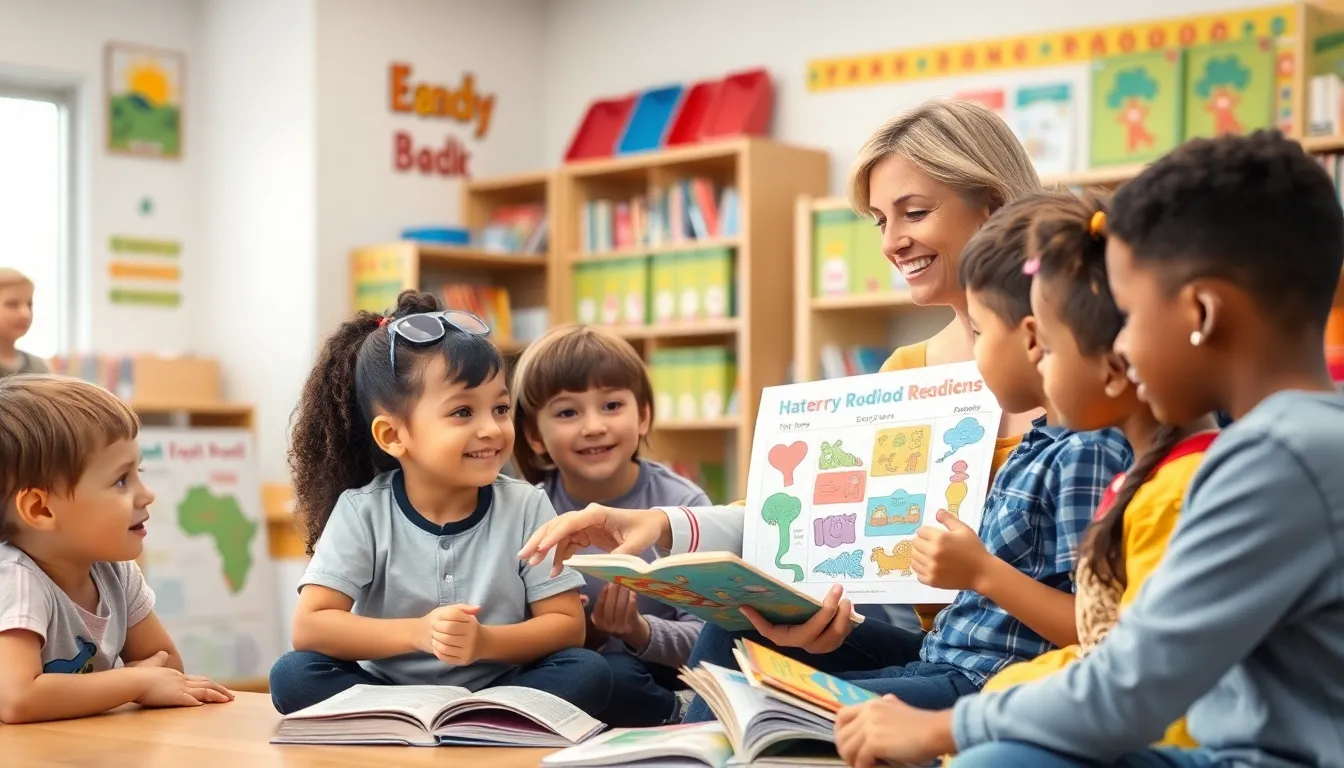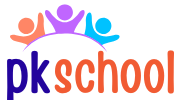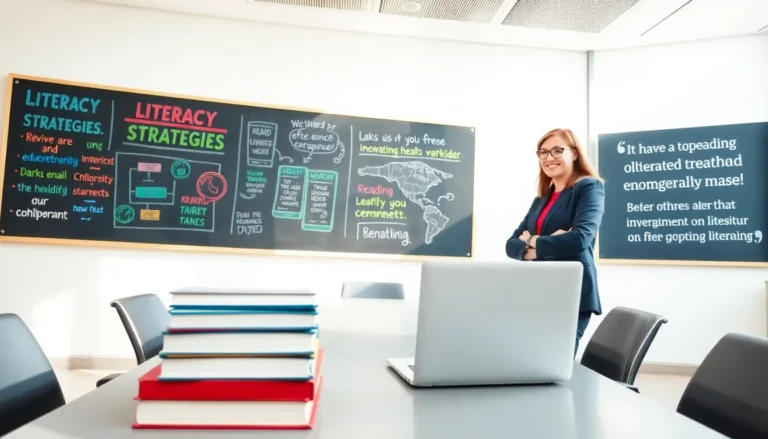In a world where attention spans rival that of a goldfish, the role of a reading specialist becomes more crucial than ever. These unsung heroes of the classroom wield their magical teaching wands to transform struggling readers into confident bookworms. Think of them as the literary superheroes, swooping in to save the day one phoneme at a time.
Whether it’s decoding the mysteries of a tricky text or igniting a passion for reading, reading specialists have a knack for making words come alive. They don’t just teach; they inspire, motivate, and sometimes even make reading feel like an adventure rather than a chore. So, if you’ve ever wondered how to turn reluctant readers into enthusiastic ones, it’s time to dive into the world of reading specialists and discover their secret sauce for success.
Table of Contents
ToggleWhat Is a Reading Specialist?
Reading specialists play a crucial role in helping students improve their reading skills. These educators focus on providing targeted support to struggling readers.
Definition and Role
A reading specialist is a certified educator with specialized training in literacy instruction. They assess students’ reading abilities, identify challenges, and develop tailored intervention strategies. By working closely with teachers, parents, and students, reading specialists foster a collaborative approach to literacy development. Their goal is to create a positive reading environment. This involves making reading a rewarding experience rather than a daunting task.
Areas of Expertise
Reading specialists possess expertise in several key areas. They understand phonemic awareness, which is essential for decoding words. Knowledge of comprehension strategies allows them to teach students how to extract meaning from texts. They also stay informed about various reading programs and materials. This ensures they select appropriate resources for different learners. Additionally, reading specialists often provide professional development for teachers, helping to enhance overall literacy instruction within the school.
Importance of Reading Specialists

Reading specialists play a crucial role in enhancing literacy skills among students. Their impact often extends beyond individual learners, influencing overall classroom dynamics.
Impact on Student Literacy
Reading specialists foster significant growth in student literacy. They conduct assessments to identify weaknesses and design customized intervention plans. Personalized attention helps students build confidence and improve comprehension skills. Students often exhibit increased enthusiasm for reading when engaging with these specialists. Their exploration of diverse reading materials motivates learners to develop a love for reading. Statistics show that targeted support from reading specialists can lead to measurable improvements in standardized test scores. Overall, reading specialists serve as catalysts for lifelong literacy development.
Support for Teachers and Schools
Reading specialists serve as invaluable resources for teachers and schools. By providing training and professional development, they enhance teachers’ literacy instruction strategies. Specialists share effective approaches to teach phonemic awareness and comprehension strategies. Collaboration between reading specialists and teachers strengthens classroom environments. They also help identify resources tailored to meet specific classroom needs. Fostering open communication ensures that teachers can seek guidance when challenges arise. In essence, reading specialists support both educators and students, cultivating a stronger literacy foundation within schools.
Qualifications and Skills Required
Reading specialists require specific qualifications and skills to effectively support students’ literacy. Their educational background and competencies shape their ability to foster a positive reading environment.
Educational Background
A bachelor’s degree in education or a related field marks the foundational step for reading specialists. Many pursue a master’s degree in reading or literacy, often supplemented by additional coursework in language development or special education. States typically require certification or licensure to practice as reading specialists, ensuring adherence to educational standards. Experience in classroom teaching further enhances their understanding of student needs.
Essential Skills and Competencies
Effective reading specialists demonstrate strong communication skills, allowing them to clearly convey strategies and engage students. They possess excellent analytical skills to assess reading levels and identify specific challenges. Flexibility in adapting instructional methods caters to diverse learning styles among students. Knowledge of current literacy programs and interventions equips them to implement the most effective strategies. Collaboration with teachers, parents, and educational staff fosters a supportive network that promotes student success.
Strategies Used by Reading Specialists
Reading specialists utilize targeted strategies to enhance students’ reading abilities. These strategies include precise assessment techniques and varied instructional approaches.
Assessment Techniques
Reading specialists conduct various assessments to pinpoint student needs. They often use one-on-one reading fluency evaluations, which measure a student’s accuracy and speed. Standardized tests provide data on reading comprehension levels, identifying specific areas for improvement. Diagnostic assessments help in understanding underlying challenges that may hinder progress. By observing student performance during informal assessments, reading specialists gather insights into reading behaviors. This comprehensive evaluation process allows specialists to tailor individualized learning plans that address each student’s specific challenges.
Instructional Approaches
Diverse instructional approaches form the backbone of effective reading instruction. Reading specialists employ phonics-based strategies to strengthen fundamental skills. They incorporate guided reading sessions, which promote comprehension and critical thinking. Interactive read-alouds encourage engagement and support vocabulary development. Specialists also utilize multisensory techniques, appealing to different learning styles to foster retention. Small group instruction allows for differentiated learning experiences, catering to students’ varying reading levels. Regularly updating resources and methods ensures that reading specialists meet the evolving needs of their students effectively.
Challenges Faced by Reading Specialists
Reading specialists encounter various challenges while working to enhance student literacy. They often adapt to the unique needs of each student and navigate complex classroom dynamics.
Working with Diverse Learners
Diverse learners present both opportunities and obstacles for reading specialists. Students may come with different language backgrounds, learning disabilities, and educational experiences. Addressing these varied needs requires flexibility and creativity in instructional strategies. Tailoring lessons to match multiple learning styles enhances engagement. Additionally, understanding cultural contexts can help specialists build rapport with students and foster a supportive learning environment. Collaboration with classroom teachers also plays a critical role, ensuring cohesive support across different learning settings.
Access to Resources
Access to adequate resources significantly impacts the effectiveness of reading specialists. Financial constraints often limit the availability of reading materials and intervention programs. A lack of updated technology can hinder the ability to implement modern teaching tools. Furthermore, access to professional development varies widely, affecting specialists’ ability to stay informed about the latest research and best practices. Networking with other educators and institutions can help alleviate resource shortages, promoting shared knowledge and innovative solutions. Support from schools and districts is essential in addressing these challenges and optimizing reading instruction.
Reading specialists are indispensable in the quest for improved literacy. Their targeted interventions and personalized strategies create a nurturing environment where students can thrive. By addressing individual challenges and fostering a love for reading, they empower learners to reach their full potential.
Their collaboration with educators enriches the overall teaching landscape, ensuring that every student receives the support they need. As they adapt to the diverse needs of learners, reading specialists remain at the forefront of literacy development, making a lasting impact on students’ academic journeys. Investing in these professionals not only enhances reading skills but also builds a foundation for lifelong learning and success.



